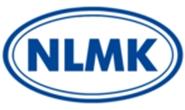Market Segment

May 20, 2014
CSI & NLMK Fight to be Recognized as American Steel Producers
Written by Sandy Williams
The “Buy America” plan for federally subsidized projects is problematic for two major U.S. steel mills owned by foreign companies. The push to use American sourced steel products in infrastructure projects is keeping NLMK USA and California Steel Industries (CSI) out of the running for bids on projects—a problem the companies are hoping to rectify by changes to provisions in key federal programs.
Although mills operated by Russian-owned NLMK USA are located in Pennsylvania and Indiana and operated by US steelworkers, the steel products produced there are considered foreign made. The same with California based CSI which is jointly owned by Brazilian mining company Vale and JFE Steel Corp. of Japan.
The main problem is that unlike Russian-owned Severstal, both companies import steel slabs which are then reheated and turn into finished products. The current standard for “made in America steel” requires that the original steel be melted and poured in the USA.
NLMK and CSI argue that their ability to grow and compete in the US is impeded by the Buy America rules. NLMK USA President Bob Miller said, “NLMK USA does not have an option to purchase slabs from a US production facility on a regular and reliable basis. The Commerce Department just recently completed a study that backs this fact up. They determined that no merchant market exists for slabs sales in the United States. Those that produce slabs use them for their internal consumption.”
Customers, said Miller, do not want to carry two inventories—one meeting America made standards and other “made in America” but not standard compliant. The Buy America language inhibits the company from supplying steel to customers and thus affects the USW workers at NLMK.
“Keep in mind,” said Miller, “that we are merely asking for the rules to just be fair. Foreign raw material purchases are eligible for those buying iron ore, coke, DRI, HBI, pig iron, and scrap. Our raw material is a slab and is not eligible under the current language.”
NLMK is finding opponents within the US steel industry, however, who say slab availability exists but imported slabs are used because they are cheaper.
“The long-standing requirement that steel be “melted and poured” in the United States in order to be Buy America compliant should be maintained,” said Thomas Danjczek, president of Steel Manufacturers Association in a letter to the US Dept. of Transportation. Danjczek admits there is a need to supplement domestic raw materials with imported ones, such as pig iron, pellitized and reduced iron ore, but that it is “important to note the distinction that exists between these iron units, which are steelmaking raw materials, and steel slabs, which are semi-finished steel products.”
Brett Guge, CSI Executive Vice President Finance & Administration, agrees that there is a “scarcity of available domestic slabs.” Guge also cited the Department of Commerce report and said “It is a bigger issue in the west because of the lack of pour and melt.”
“Buy American,” said Guge, “goes back to the 1930’s and historically called for the steel to be ‘substantially transformed’ which they do through the rolling process of taking a slab and creating coils which can be manufactured (slabs cannot be used as is–they must be substantially transformed by US workers in order to be sold into the marketplace).
“Buy America (no “N”) has been determined, by the Office of Management & Budget (OMB) to mean ‘melted and poured’ in the United States. This prevents foreign produced slabs from being used on order destined for highways and bridges, etc. which contain the ‘Buy America’ language.”
The Ukraine crisis also throws a wrinkle into NLMK’s hopes to change the rules that qualify “American made” steel. With U.S. sanctions placed on some of Russia’s wealthiest industrialists, some fear using steel from NLMK circumvents the sanctions to line Russian pockets with American coin.
Sen. Sherrod Brown (D-OH), a strong supporter of American steelworkers, said in a statement “American tax dollars for American infrastructure projects should support American jobs, rather than enrich a Russian oligarch.”
Vladimir Lisin, chairman and owner of Novoliptsk Steel (NLMK) is not on the sanction list and NLMK USA President Robert Miller says the Buy America issue predates the Ukrainian crisis.
“It is not about Russian slab at all,” said Miller. We must remember how much Russian investment we have in the United States Steel and Pipe and Tube sectors. This investment has created or preserved tens of thousands of well-paying jobs for the manufacturers and suppliers involved.”
NLMK and CSI were defeated in a recent attempt supported by Sen. Dianne Feinstein (D-Calif) and Rep. Janice Hahn (D-Calif) to change provisions in the water infrastructure bill to include steel products manufactured in the United States as “produced in the United States,” even if the steel slab used was imported from foreign sources.
The next attempts by NLMK and CSI will be to pursue language changes in provisions in a transportation bill before the House and Senate as well as in projects under the Interior Department, Environmental Protection Agency and others.
Most of the language concerns are in federal issues, said Guge, but attempts are being made to exclude steel made with foreign originated slab from state funding authorizations as well.
Both companies say the Buy America wording is unfair to American workers and U.S. customers. CSI says they just want what is fair and to return to the Buy American language that worked well for the past 80 years.
“Any issue that threatens fair trade is a concern for NLMK USA,”said Miller. “We compete in a global market place.”







